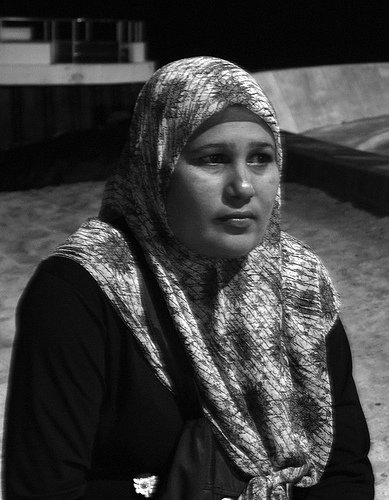On 19 September 2003 a conflict among some inmates of Maafushi Jail in the Maldives led to 12 of them being isolated from their cells. Among the isolated was Hassan Evan Naseem, a 19 year-old boy imprisoned because of drug-related charges. Evan insisted that he was not part of the disturbance and it is said that he resisted the security guards’ efforts to isolate him and is alleged to have hit a guard with a piece of wood. The anger of the guards fell on Evan. Beatings and torture were common at Maafushi Jail but what happened on that day changed the course of history in the Maldives.
Evan was kept standing against the eastern wall of a workshop in the jail during the night, with his hands over his head and handcuffed to steel bars on the wall. The yard of the workshop was the infamous ‘Range’ area, where prisoners are subjected to most inhumane torture in the Maldives. At least 12 security guards beat Evan with their bare hands, wooden planks, riot batons and boots. A doctor who examined Evan’s body recorded the time of death as 11.20 p.m.
When the prisoners heard about Evan’s death they started a riot in prison the following day. Security guards opened fire and killed at least one person on spot and injured several more prisoners. Two more prisoners died of injuries later while they were being treated abroad.
At the government’s hospital in Malé the authorities showed the body of Evan to the family and tried to hastily bury it. In previous cases, torture victims were quickly buried, and families were either intimidated or paid to stay silent. But Evan’s family, including his grief-stricken mother Mariyam Manike, stood their ground firmly, refusing to bury the body hastily.
People flocked to see the body after it was moved to the public cemetery. They were horrified to see the marks on Evan’s body, which were testaments of the cruelty of the regime that was ruling since 1978. Angry people carried a second body from the hospital to the cemetery; Abdulla Ameen with blood gushing from a bullet wound in his head. Angry citizens overturned several police vehicles and set them on fire. They also torched several police stations, the High Court and the Office of the Commissioner of Elections.
Concerned citizens went into exile following this incident and formed an opposition movement. To counter public outrage the government was forced to announce a ‘reform agenda’. Although the democracy movement is still at odds to face a government heavily backed by the police and military, September 19-20 is heralded as a watershed in contemporary politics of the Maldives.
This year democracy activists turned to blogs and the social networking website Facebook to organize a vigil to remember Evan. An event was created at Facebook titled “9/19: Remembering Evan Naseem.” The vigil was organized by Idhikeeli, a recently formed interest group in the Maldives.
The organizers labeled the vigil as “an open source event” and urged different groups of participants to work out ideas of their own. Bloggers were encouraged to cover the event and photographers were asked to upload photos to Flickr. Participants were asked to sit on the seawall surrounding Malé and hold the vigil.
Evan’s mother Mariyam Manike participated in the vigil to remember her son who was brutally beaten to death four years ago.

Evan's mother at vigil. Photo used with permission
The turnout for the vigil was not very high, which one Facebook user blames on lack of empathy in people. However, the organizers claimed the vigil was a success.
The event was primarily promoted through Facebook. We created an event at Facebook on September 14. Within just six days the event was one of the most popular in the Maldives network of Facebook. When the event began at 9.00 pm 87 people had confirmed to attend, and 72 people indicated that they might attend. The number of people not attending the event remained at 360 and 660 people had not replied. More than 1,100 people were invited within six days with the support of Facebook users and admins of Facebook groups. When the event was created there were close to 5,000 members in the Maldives network in Facebook. The number of people not attending and the number of people who were invited included those not in the country.
Because of the repressive nature of police, the number of people who indicated they were not attending and those who did not respond in either way do not truly reflect the support for such an event.
This event is a success and we plan to have the same event next year with more people and new activities to mark 9/19.
Facebook is the new craze among Maldivian youth. They are turning to the social networking website to keep in touch with friends and make new friends. However, the politics of the country has reached Facebook too. Several groups are mushrooming in Facebook to work for civil liberties and democracy. So far the government is tolerating this new activity on the Internet front, even though it had banned critical websites in the past. For example, a highly critical forum called Dhivehi Forum hosted in Delphi Forums led to the government banning the entire Delphi.com domain a few years back.
More bloggers are becoming bold in criticizing the government. It remains to be seen if blogs and social networking websites could bring new energy to a democracy movement that is going through inertia because of divisions among opposition leaders and lack of coherent strategies.







4 comments
thank you so much for sharing this!!